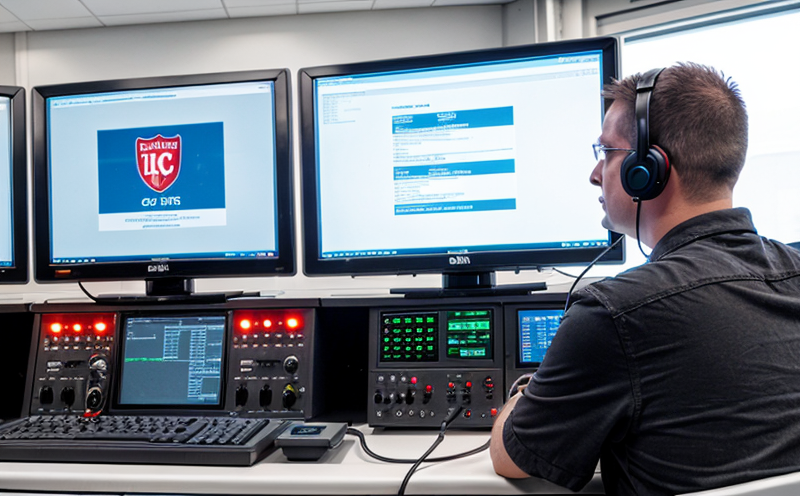Unlocking Safety and Compliance with IEC 62133 Why Your Business Needs Eurolabs Expert Laboratory Services
In todays fast-paced business world, compliance is key to avoiding costly penalties, damage to reputation, and even legal action. One critical area of focus for companies involved in the production and sale of lithium-ion batteries is ensuring adherence to the International Electrotechnical Commission (IEC) standard This comprehensive set of guidelines outlines the requirements for battery safety and performance, including testing protocols and certification procedures.
IEC 62133 Compliance is not merely a regulatory requirement but a critical step in safeguarding your customers, products, and brand integrity. As a leading laboratory service provider, Eurolab understands the importance of IEC 62133 Compliance and is here to guide you through the process.
What is IEC 62133 Compliance?
IEC 62133 is an international standard that defines the safety requirements for lithium-ion batteries and their components. The standard applies to all types of lithium-ion cells and modules, including electric vehicles, portable electronics, and other battery-powered devices. To ensure compliance with this standard, manufacturers must conduct rigorous testing and certification procedures.
Why IEC 62133 Compliance is Essential for Your Business
IEC 62133 Compliance offers numerous benefits that can enhance your businesss safety, efficiency, and competitiveness. Here are some of the key advantages
Risk Mitigation By adhering to the IEC 62133 standard, you can significantly reduce the risk of product failures, recalls, and associated costs.
Enhanced Customer Trust Demonstrating compliance with industry-recognized safety standards builds trust with your customers, who demand safe and reliable products.
Improved Supply Chain Management Compliance with IEC 62133 ensures that all stakeholders in the supply chain are aware of the requirements for lithium-ion battery production and testing.
Increased Efficiency Streamlining your manufacturing process through IEC 62133 compliance can lead to cost savings, reduced waste, and improved productivity.
Heres a more detailed breakdown of the benefits
Key Benefits of IEC 62133 Compliance
Conforms to International Standards Ensure that your products meet the international standard for lithium-ion battery safety and performance.
Reduces Risk of Product Failures Minimize the risk of product failures, recalls, and associated costs by adhering to industry-recognized safety standards.
Improves Supply Chain Management Enhance transparency and accountability throughout the supply chain with IEC 62133 compliance.
Increases Customer Trust Build trust with customers who demand safe and reliable products that meet industry standards.
What is Involved in IEC 62133 Compliance?
To achieve IEC 62133 Compliance, manufacturers must undergo a series of rigorous testing and certification procedures. These include
Battery Cell Testing Evaluate the safety and performance of individual battery cells.
Module Testing Assess the safety and performance of battery modules.
Thermal Runaway (TR) Testing Investigate the potential for thermal runaway in lithium-ion batteries.
Overcharge, Short-Circuit, and Crush Tests Evaluate a batterys ability to withstand overcharge, short-circuit, and crush conditions.
QA IEC 62133 Compliance with Eurolab
Here are some frequently asked questions about IEC 62133 Compliance and our laboratory services
What is the scope of IEC 62133?
How can Eurolab help my business achieve IEC 62133 Compliance?
What testing procedures are involved in achieving IEC 62133 Compliance?
Can Eurolab provide certification for IEC 62133 Compliance?
How long does the IEC 62133 Compliance process typically take?
At Eurolab, our expert laboratory services will guide you through every step of the IEC 62133 compliance process. From testing and certification to documentation and reporting, well ensure that your business meets the highest standards for lithium-ion battery safety and performance.
Conclusion
IEC 62133 Compliance is a critical aspect of ensuring product safety, reducing regulatory risks, and enhancing customer trust. By working with Eurolab, you can unlock the benefits of IEC 62133 Compliance and take your business to the next level. Contact us today to learn more about our laboratory services and how we can support your compliance journey.
Sources
International Electrotechnical Commission (IEC). (2020). IEC 62133 Ed. 0 b2017 Safety aspects for portable sealed secondary cells, containing rechargeable alkaline or zinc-chloride batteries.
Eurolab. (n.d.). Laboratory Services.
This article has been written to provide information and insights about the importance of IEC 62133 Compliance in ensuring product safety and regulatory compliance.
-
Testing battery safety under international IEC 62133 safety standards
-
Verifying battery protection against electrical, mechanical, and environmental hazards
-
Simulating short circuit, overcharge, and thermal abuse conditions for compliance
-
Assessing battery performance under various stress tests for IEC 62133
-
Measuring the risk of fire, explosion, or chemical leakage during compliance testing
-
Testing for compliance with IEC 62133 for consumer electronics batteries
-
Evaluating the robustness of battery cells and packs against physical damage
-
Ensuring safety compliance for batteries used in medical devices and wearables
-
IEC 62133 compliance testing for batteries used in electric vehicles
-
Determining battery safety during overcharge, deep discharge, and short-circuit scenarios
-
Assessing battery design features to meet IEC 62133 safety requirements
-
Simulating abusive conditions to ensure compliance with IEC 62133
-
Testing for safe operation and disposal of batteries according to IEC standards
-
IEC 62133 compliance testing for batteries in energy storage and industrial applications
-
Evaluating safety features in battery management systems for IEC compliance
-
IEC 62133 testing for batteries used in aviation and aerospace
-
Assessing the thermal stability of batteries under compliance testing conditions
-
Verifying battery casing and packaging against impact and puncture risks
-
Measuring voltage, current, and temperature limits during compliance testing
-
Testing for compliance with international battery safety standards for transport




